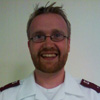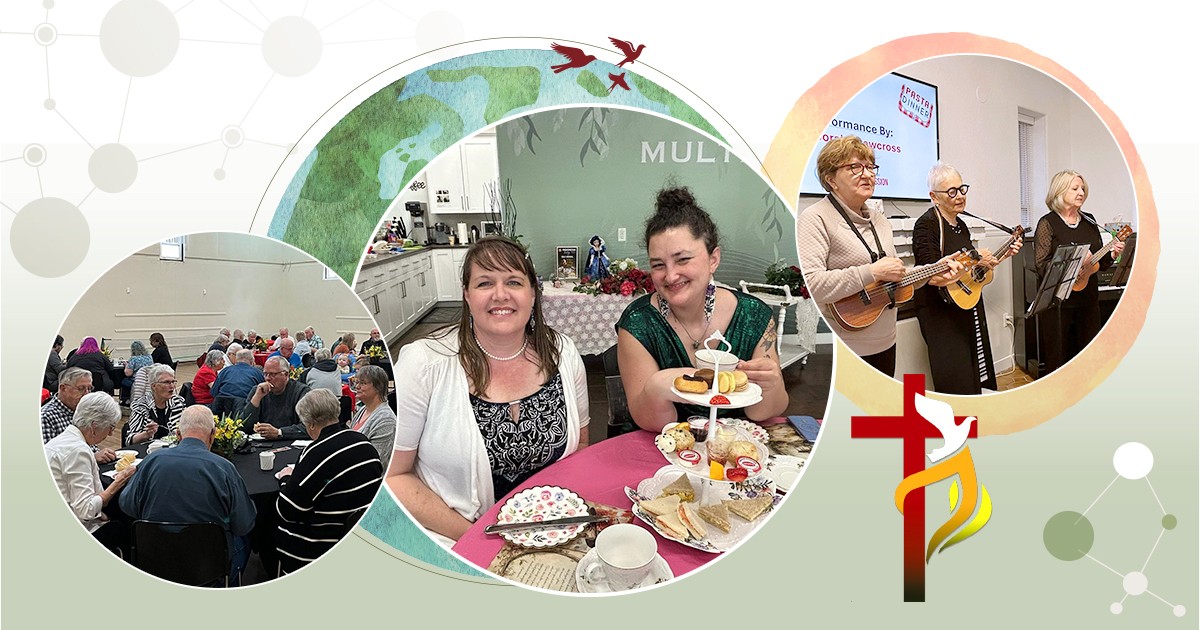
My own calling to officership was modelled on the example that both my parents set as faithful local officers. When my father finished a busy day at work, we would pile into the car with a trunk load of frozen turkeys and homemade jams, food items that were destined for the empty refrigerators of corps members or anyone else who was struggling financially. As we drove those forlorn roads of north-eastern Nova Scotia, dropping off little care packages that would see a family through another week, my dad imparted to me his theology of local officership. In many ways, it was identical to William Booth's criteria for finding suitable local men and women that would help the officer carry out the Army's work, mainly, that they be “lovers of souls, living holy lives.” Both of my parents did just that and I am grateful to them. As local officers, my parent's duties extended far beyond what happened within the walls of the church: theirs was an active ministry―a ministry that reached out and touched the lives of our soldiers, adherents and recruits. Their service helped ease the burden of leadership that was experienced by the many corps officers who served alongside of them.
As a corps officer still in my first appointment, my thoughts turn to the state of local officership in The Salvation Army today. Do we place the same emphasis on growing, cultivating and sustaining local leadership? While churches within the Army may be growing, the call to leadership within the Church is not always given. Many corps across the territory do not have a CSM (or equivalent) and have not had one for many years. Certainly, corps officers do not want to put people in roles just for the sake of having them filled, but there should be an honest attempt to develop people in leadership. Beyond waiting for the perfect candidate for local officership to walk through the doors of our churches, we need to start by developing the people that God has already given us.
The abbreviations and titles of local officer ranks in The Salvation Army are both colourful and a little bewildering: CT, CS, RS, CCG, BM, QM, Publications Sergeant Major, JSS, SL, Ward Sergeant, CCM Sec, and so on. (How many could you figure out?) Some of these positions may not match the situation on the ground in many of our corps and community churches. But surely the need for qualified, spirit-filled local leaders is always there.
Dr. Bramwell Southwell, a retired CSM from Melbourne, Australia, offers a simple but powerful definition of a local officer. “A definition of a local officer might be one who can get others to work together.” Sounds easy enough, but getting people to work together in any task, let alone the building up of God's Kingdom, requires a level of spiritual maturity that is not always easy to find. And what happens when your prime candidate for local officership is an adherent and not a soldier? Is there a way of credibly having a parallel structure to local officership that employs the gifts and talents of adherents? Or is our requirement of soldiership as the preferred route to local officership a non-negotiable?
Clearly defining a process of leadership and development training for all of the members that comprise our congregations is sorely needed if we are to take seriously our God-given mandate to raise up disciples for Jesus Christ. If you're lucky enough to be in a ministry unit that has a CSM, YPSM or any other local officer, take a moment this week to encourage them in their calling. Pray for them and with them, asking for God's strength and favour to fall upon them. They are leaders, commissioned to serve God and his church, and they need your support. “Remember your leaders, who spoke the word of God to you. Consider the outcome of their way of life and imitate their faith” (Hebrews 13:7).
 Lieutenant Robert Jeffery is the corps officer of Spryfield Community Church in Halifax, Nova Scotia. Married to Hannah, they have two children.
Lieutenant Robert Jeffery is the corps officer of Spryfield Community Church in Halifax, Nova Scotia. Married to Hannah, they have two children.









Great article Rob!